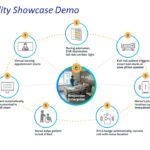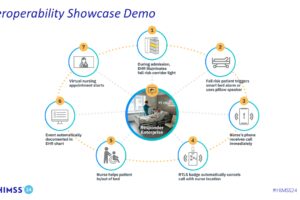Speke is a premium service that provides scribal services to clinicians. While many companies boast of creating clinical notes purely through natural language processing and AI, Speke leverages ambient clinical voice together with human scribes to create a higher quality note for the clinician.
Executive Vice President Vadim Khazan justifies the choices made by Speke, which is part of the company ScribeAmerica, by posing a trade-off. Despite “staggering advances in natural language processing,” AI-generated notes are rarely correct in all details and sometimes have major lapses. Thus, the doctor has to spend more time correcting the note than with a well-trained human scribe.
There are also other advantages to using human scribes, assisted by AI. They can reflect the different preferences that doctors have in the notes. Integration with the EHR is much easier because a person is logging in and uploading the note. Speke works with all EHRs.
Listen to the video for more details about how the service works, how they use feedback from both scribes and clients to improve quality, and the future of the technology.
Learn more about ScribeAmerica: https://www.scribeamerica.com/speke/
Check out other articles on ambient clinical voice:
- Corti Becomes Part of the Conversation
- Nuance Is Setting the Bar for Ambient Clinical Voice
- A Look at Nabla Copilot’s Automatic Clinical Documentation
- Fully Automated Medical Scribes Using AI
- Oracle Health Goes Beyond Visit Summaries with Its Use of AI in Their EHR
- Augmedix Derives More Value from Automated Generation of Medical Notes
- Real-Time Clinical Note Generation from Mutuo Health Solutions
- Outsourcing Clinical Notes to an Expert-Machine Collaboration Using Ambient Clinical Voice
- Abridge Aims at Transparency, Reliability, and Credibility with Their Ambient Clinical Voice Solution
- NextGen Focusing on AI to Improve Workflows and on Street Medicine
- The Evolution of Suki’s Ambient Clinical Voice Solution and What Differentiates It in the Market
Listen and subscribe to the Healthcare IT Today Interviews Podcast to hear all the latest insights from experts in healthcare IT.
And for an exclusive look at our top stories, subscribe to our newsletter.
Tell us what you think. Contact us here or on Twitter at @hcitoday. And if you’re interested in advertising with us, check out our various advertising packages and request our Media Kit.













